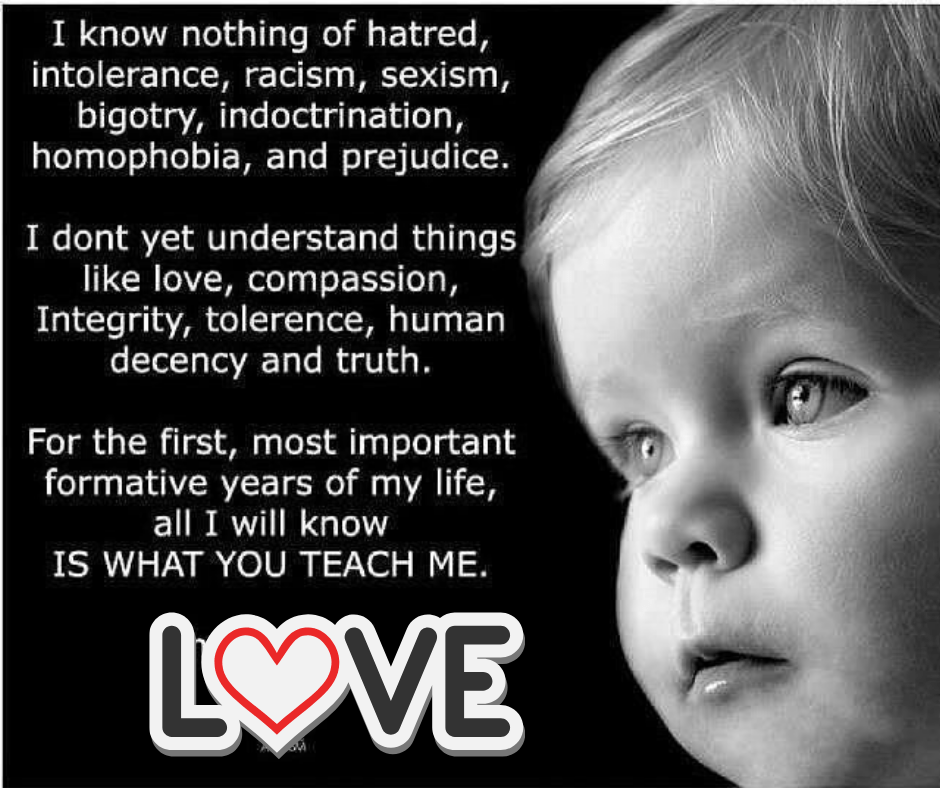

Help! how do i talk with My kids about Racism, Violence And Protests?
By Deborah Chalifoux, MA, CCC-SLP, MS-Ed,
The recent death of George Floyd has opened a centuries-old wound around racism that’s begging to be healed. As protests over the violent deaths of Black Americans are dominating the news, anger, grief, guilt, pain and fear weigh heavy on our collective hearts. Children are sensitive and can pick up on the energy and emotions of the adults around them, whether or not they have been exposed to the graphic media images and words. Therefore, is likely our children are feeling scared, confused and angry about the situation, too. If parents themselves are struggling to process what they are seeing and feeling, how can we help our children do the same?
In these troubling circumstances, experts in child psychology and race-based stress are emphasizing the importance of finding developmentally appropriate ways for parents to talk to their children of all ages about racism, protests, violence and police brutality. Below is some expert advice for parents on how they might approach these difficult but essential conversations.
-
Validate Your Child’s Feelings
Check in with your child and their feelings. “Ask them what they know and what they’ve seen. Ask them how they are feeling. Validate their feelings and let them know what you are doing to keep them safe — be it in your home or your community,” advises Dr. California pediatrician Dr. Rhea Boyd, who teaches nationally on the relationship between structural racism, inequity and health. Children are very perceptive, and may have worries and concerns they may not know how to express. To help young children express thoughts or feelings that are hard to express with words, let them draw, paint or act out stories with toy
-
Limit your children’s exposure to the media…
If your children are young, parents should do their best to monitor and limit the exposure children have to media, whether television, smart phones or tablets, experts say. “This can be done by setting certain times that children can use their devices, co-view the content, find other activities like playing outside, games, cooking together, set rules that kids should use the devices in a common area where parents can check in,” says Maryland pediatrician Dr. Jacqueline Dougé, who co-authored the American Academy of Pediatrics’ statement on the impact of racism on child and adolescent health.
-
….but don’t avoid talking about this topic
These are difficult things to talk about. Says Dr. Kenya Hameed, PsyD a clinical neuropsychologist at the Child Mind Institute, changing the current mentality and fostering the mindset to work towards a better future “can’t and won’t happen without frank, open conversation—a conversation that for most black families has never been optional.” Experts say this is the time to begin teaching your child about systemic racism and how to identify and refute it. Says California pediatrician Dr. Rhea Boyd, who teaches nationally on the relationship between structural racism, inequity and health, “Parents who have not already, should proactively engage their kids around these distressing events.”
-
Be clear, direct and factual
Use clear language when speaking with children of all ages, emphasizing that racial violence is wrong and that black people have been treated unfairly for a long time, and that’s bad. You can talk about the history of racism that dates back 100s of years, and at the same time, you can also emphasize your hope for a better future and plan ways your family can help make that better future a reality.
-
Encourage questions- and don’t worry if you can’t answer them
Your children are likely to have many questions, and most likely they won’t be easy ones. Racism and violence are not easy subjects to discuss, and feeling uncomfortable during the conversation is normal. But by pushing through the discomfort, you are modelling an important skill for your child. You can be honest about your discomfort and say, “It’s hard even for me to talk about this and it does feel scary, but talking also makes me more hopeful that things can and will change!”
-
Don’t forget to take care of yourself!
“A parent’s first step is to take care of themselves, their mental health, their emotional health. Put their oxygen mask on first before they put the oxygen mask on their child,” said Chicago pediatrician Dr. Nia Heard-Garris, who chairs the minority health, equity and inclusion committee of the American Academy of Pediatrics (AAP). t’s extremely important for parents to check in with their own mental health during this time, especially given the additional stress of the coronavirus crisis. The images if the violence we are seeing on the news can be deeply upsetting for all, and for parents of children of color, it can also be traumatic. If any parent is feeling exhausted or overwhelmed, remember to reach out to your networks for support—friends, family religious leaders, mental health professionals—to help you process your emotions and plan conversations you might want to have with your children.
-
Try to be calm, but don’t try to hide your emotions
Pick a time to talk to your children when you are feeling centered and have had a chance to work through your own feelings. Children take their parents’ cues, so being able to stay calm and factual when you speak will help your child to process information more calmly and rationally themselves. At the same time, know it’s okay to express your emotions with your children, especially when the subject is so important. Let them know it’s ok to be sad or angry, says Dr. Hameed, and acknowledge that it’s good to be upset at injustice as long as it doesn’t stop you from having hope about the future and working to make it better.
-
Keep the conversation open
This is not an open and shut conversation to have with your children. Rather, the dialogue regarding racism and violence can and should be on-going and evolving. Look for opportunities to reopen the discussion in proactive and positive ways. Check in on your children, being sure to let them know that you are there for them whenever they need to talk.
Above all, do remember that there is hope amidst these tragic circumstances, and that this moment in history is providing an unprecedented opportunity for all parents to foster honest conversations with their children about the cycle of racism and discrimination that has been prevalent in our society. Says Kira Banks, a clinical psychologist whose website “Raising Equality” provides free resources on how parents can fight racism, “Is this a teachable moment? Absolutely. It must be, it has to be.” Banks encourages parents by saying that now more than ever is the time to begin “raising our children to see and disrupt racism, and be the change we want to see.”